26 Vital Questions to Ask Before Submitting Rental Applications
You’ve probably lost thousands of dollars in the past by not asking the right questions before signing a rental agreement.
As you’re searching for your next home, you’ll want to protect yourself from unexpected costs, restrictive policies, and problematic living situations that could have been avoided.
Whether you’re a first-time renter or a seasoned tenant, steering through the rental application process requires more than just submitting paperwork and hoping for the best.
Let’s explore the essential questions that’ll help you make an informed decision and potentially save you from costly mistakes down the road.
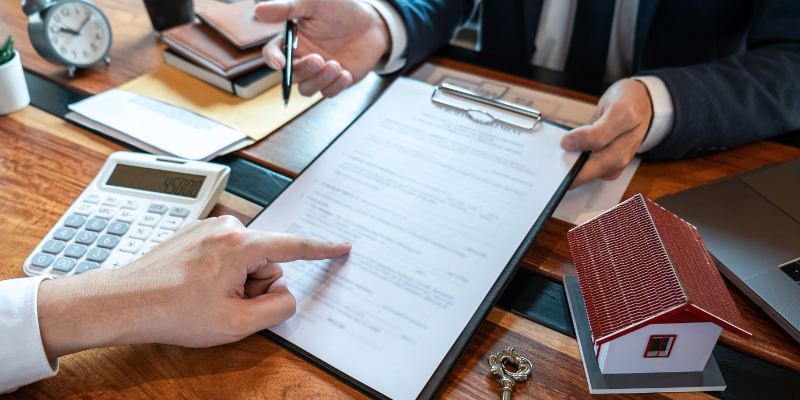
What’s Included in Monthly Rent
Monthly rent payments typically encompass more than just the base cost of occupying the rental unit.
You’ll need to determine exactly which utilities and services your landlord includes in the monthly payment.
Ask specifically about water, electricity, gas, trash collection, internet, and cable TV services.
Don’t forget to inquire about maintenance services, parking fees, and amenity access.
Some properties include gym membership, pool usage, or package acceptance services in the base rent.
Others charge additional fees for these perks.
You’ll also want to verify whether pest control, landscaping, or snow removal fall under your landlord’s responsibilities or yours.
Understanding these inclusions helps you accurately calculate your total monthly housing expenses and avoid unexpected costs after moving in.
How Are Utilities Handled

Understanding how utilities are managed in your rental property is essential before signing a lease agreement.
You’ll need to know exactly which utilities you’re responsible for and which ones the landlord covers.
Ask specifically about electricity, gas, water, sewage, trash collection, and internet service.
Find out if utilities are included in your monthly rent or if you’ll pay providers directly.
Get estimates of average monthly utility costs from the landlord or previous tenants to budget accurately.
You should also verify if there are separate meters for each unit or if utilities are split among multiple tenants.
Don’t forget to ask about any utility caps or maximum usage limits that might trigger additional charges.
Knowing these details upfront helps you avoid unexpected expenses and determine your true monthly living costs.
Lease Length and Terms
Beyond utility considerations, you’ll need to carefully examine the duration and specific conditions of your rental agreement.
Ask about the minimum lease length and whether month-to-month options are available after the initial term.
You’ll want to understand the early termination policy and associated fees if you need to break the lease unexpectedly.
Pay close attention to renewal terms, including how much notice you must give and potential rent increases.
Review restrictions on guests, pets, decorating, and subletting. Make sure you’re clear on maintenance responsibilities – both yours and the landlord’s.
Don’t forget to inquire about security deposit terms, including the timeframe for its return and conditions that could affect reimbursement.
Get all promises and special arrangements in writing to protect your interests.
Security Deposit Amount

Determining the security deposit amount is a critical step in your rental application process.
You’ll need to verify not only the exact amount required but also understand what’s legally permissible in your state, as many jurisdictions limit deposits to one or two months’ rent.
Ask your potential landlord about the specific conditions for receiving your full deposit back.
You’ll want to document any existing damage during your initial walkthrough and understand which deductions are considered reasonable wear and tear versus damage.
Make sure you’re clear on the timeline for the deposit’s return after move-out – most states require landlords to return deposits within 14-60 days.
Get all deposit terms in writing, including whether you’ll earn interest on your deposit, as some states mandate this requirement.
Pet Policy and Fees
While security deposits protect landlords from property damage, pet-related policies and fees represent another important financial consideration.
You’ll need to confirm whether the property allows pets at all, and if so, which types and sizes are permitted.
Many landlords charge both a non-refundable pet fee and additional monthly pet rent.
Ask these specific questions about the pet policy:
- Are there breed or weight restrictions?
- How many pets can you have?
- Will you need to provide veterinary records or proof of vaccinations?
- What’s the one-time pet fee, and how much is the monthly pet rent?
Some properties also require pet interviews or references from previous landlords about your pet’s behavior.
Don’t forget to get all pet-related agreements in writing as part of your lease.
Maintenance Response Time

Quick maintenance response can make or break your rental experience, so you’ll want clear answers about how property management handles repairs and emergencies.
Ask specifically about their average response times for different types of issues: emergency repairs (like burst pipes), essential repairs (broken AC or heating), and routine maintenance (dripping faucets).
Find out if they’ve an on-site maintenance team or rely on outside contractors.
Get details about their 24/7 emergency maintenance policy and how to submit maintenance requests.
Don’t forget to ask about their preventive maintenance schedule and whether they document all repair work.
You’ll also want to know if you’re allowed to perform minor repairs yourself and what qualifies as emergency maintenance.
Check reviews from current tenants to verify their claims about response times.
Parking Arrangements
Beyond maintenance concerns, parking arrangements can greatly impact your daily living experience.
You’ll need to clarify whether dedicated parking spots come with your rental, or if it’s first-come, first-served.
Ask about the number of spots allocated per unit and whether they’re covered or uncovered spaces.
Don’t forget to inquire about guest parking policies and any associated fees. Some properties require parking permits, while others have time restrictions or zones for visitors.
If you own multiple vehicles, confirm if there’s an extra charge for additional spots.
In urban areas, you’ll want to understand street parking regulations and whether the landlord provides permits.
For properties with garages, verify if they’re included in your rent or require separate fees.
Who Handles Lawn Care

Understanding lawn care responsibilities is essential before signing a rental agreement, as maintenance obligations can markedly impact both your time and budget.
You’ll need to ask your potential landlord who’s responsible for mowing, weeding, fertilizing, and seasonal cleanup.
Don’t assume anything – get these details in writing.
If the landlord handles lawn care, confirm whether the cost is included in your rent or if it’s an additional fee.
When you’re responsible for maintenance, you’ll need to factor in equipment costs, time commitments, and local ordinances about yard upkeep.
Some properties may require specific maintenance schedules or standards.
You’ll also want to clarify snow removal duties in winter climates and irrigation responsibilities during growing seasons.
These details can markedly affect your rental experience and financial planning.
Noise Restrictions
Most rental properties have specific noise restrictions that you’ll need to understand before signing a lease.
Common policies include quiet hours between 10 PM and 7 AM, limitations on party sizes, and rules about musical instruments or loud entertainment systems.
You’ll want to ask about decibel limits, enforcement methods, and consequences for violations.
Find out if there’s any flexibility for special occasions like birthday parties or holiday gatherings.
It’s also essential to understand how management handles noise complaints from neighbors and whether there’s a warning system before penalties are imposed.
Additionally, check if there are different rules for weekdays versus weekends, and whether the property has sound-dampening features between units.
Understanding these restrictions upfront helps you assess if the property aligns with your lifestyle and social habits.
Subletting and Guest Policies

When evaluating rental applications, you’ll need to ask detailed questions about the property’s subletting and guest policies, as these rules directly impact your ability to have visitors or temporarily transfer your lease.
Ask about the maximum number of consecutive nights guests can stay without requiring registration or approval.
Determine if there’s a formal process for adding roommates or temporary occupants.
You’ll want to know if subletting is permitted during extended absences, such as summer breaks or work assignments.
Be sure to clarify the landlord’s requirements for subleasing, including application fees, screening processes, and whether you’ll remain responsible for rent payments.
Don’t forget to inquire about short-term rental platforms like Airbnb – many properties explicitly prohibit these arrangements in their lease terms.
Payment Methods Accepted
Payment arrangements form a key part of your rental application process, much like establishing guest policies.
You’ll need to confirm which payment methods your potential landlord accepts and whether they align with your preferred way to pay rent.
Ask specifically about electronic payments, personal checks, money orders, or cash options.
Many modern properties use online tenant portals that accept credit cards or direct bank transfers, while others stick to traditional methods.
You’ll want to know about any processing fees associated with different payment types and whether you can set up automatic recurring payments.
Don’t forget to inquire about the landlord’s policy on split payments if you’re sharing rent with roommates, and verify whether they require the full amount from a single source or accept multiple partial payments.
Late Fee Structure
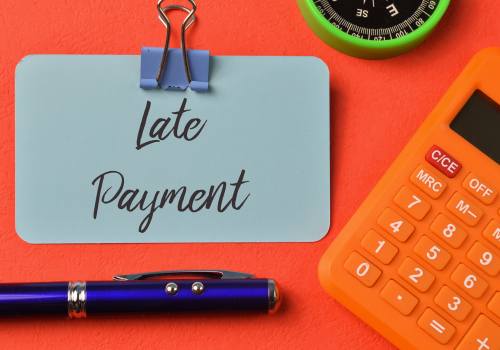
Understanding the late fee structure before signing a lease can save you from costly surprises down the road.
You’ll want to know exactly when your landlord considers a payment “late” – whether it’s the day after the due date or if there’s a grace period.
Ask for specific dollar amounts or percentages of rent charged as penalties.
Don’t forget to inquire about how fees compound. Some properties charge initial late fees plus additional daily charges until you’ve paid in full.
You’ll also need to understand if there’s a maximum late fee cap and whether returned check fees apply separately.
Make sure you get these terms in writing, and verify that they comply with your state’s regulations on maximum allowable late fees.
Move-In Costs
Before signing a rental application, you’ll need to calculate the total upfront costs required to secure the property.
These typically include first month’s rent, last month’s rent, security deposit, pet deposit (if applicable), and application fees.
Don’t forget to ask about any additional move-in expenses such as key deposits, garage remote fees, utility activation costs, or required renters insurance.
Some properties charge a non-refundable cleaning fee or administrative fee that you’ll need to factor into your budget.
Make sure you understand which costs are refundable and under what conditions. Get all fee amounts in writing and confirm the acceptable payment methods.
Many properties won’t accept cash or personal checks for move-in costs, requiring certified funds or electronic payments instead.
Previous Tenant Issues

When evaluating a potential rental property, smart tenants ask about any issues or conflicts involving previous occupants.
You’ll want to inquire about evictions, lease violations, and recurring disputes that might reveal underlying problems with the property or management.
Ask specific questions about why the previous tenants moved out, whether they received their security deposits back, and if there were any major maintenance requests left unresolved.
These details can expose potential red flags about the landlord’s responsiveness and fairness.
You should also investigate if there’s been frequent tenant turnover, which could indicate deeper issues with the unit or building management.
Don’t hesitate to request documentation of previous complaints or repairs.
Understanding the property’s history helps you make an informed decision and avoid inheriting someone else’s ongoing problems.
Neighborhood Safety Record
Safety concerns should rank among your top priorities during the rental application process.
You’ll want to research local crime statistics, check sex offender registries, and review police reports for the specific neighborhood.
Don’t hesitate to ask the landlord about security measures like outdoor lighting, secure entry systems, and surveillance cameras.
Visit the property at different times of day to observe neighborhood activity patterns.
You can contact the local police department for detailed crime data and speak with potential neighbors about their experiences.
Look for signs of community watch programs and assess the property’s proximity to emergency services.
Consider factors like street lighting, property maintenance, and visible security presence.
If you’re moving to an unfamiliar area, these safety checks become even more essential for your peace of mind.
Appliance Age and Condition
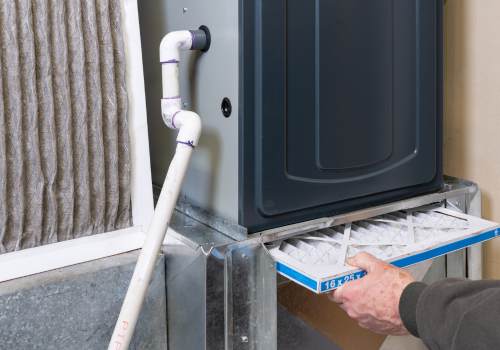
Investigating the age and condition of major appliances could save you significant headaches and expenses down the road.
Ask your potential landlord for the age, maintenance history, and warranty status of each major appliance, including the refrigerator, dishwasher, washer/dryer, water heater, and HVAC system.
Don’t hesitate to test each appliance during your walkthrough.
Run the dishwasher briefly, check if the refrigerator maintains proper temperature, and listen for unusual noises from the washer and dryer.
You’ll want to confirm who’s responsible for repairs or replacements if these items fail.
Many lease agreements specify this, but it’s better to discuss it upfront.
Request documentation of recent maintenance and ask about any known issues that might affect performance or require attention in the near future.
Renovation Plans
Understanding any planned renovations or improvements should be an essential part of your rental property evaluation.
Ask your potential landlord about scheduled upgrades, repairs, or major construction projects that could affect your living experience during your lease term.
You’ll want to know specific timelines for any planned work, including start and completion dates, and how these changes might impact your daily routine or access to amenities.
Get clarity on whether renovations will result in rent increases or require temporary relocation.
If outdoor improvements are planned, confirm how they’ll affect parking or yard access.
Don’t forget to inquire about cosmetic updates you’re allowed to make yourself, such as painting walls or installing shelving.
Get all renovation-related agreements in writing to protect your interests and avoid future disputes.
Insurance Requirements

A critical aspect of your rental application involves knowing exactly what insurance coverage you’ll need to secure before moving in.
Most landlords require renters insurance, but the specific coverage amounts can vary considerably between properties.
You’ll want to ask about the minimum liability coverage required, which typically ranges from $100,000 to $300,000.
Find out if you need to list the property manager or landlord as an “additional insured” party on your policy.
Some properties also mandate specific coverage for personal property, usually between $10,000 and $50,000.
Don’t forget to inquire about any special insurance requirements for pets or high-value items.
Make sure you understand whether you’ll need to provide proof of insurance before signing the lease or by your move-in date to avoid any last-minute complications.
Common Area Rules
Before signing your lease, you’ll need to know exactly how the property’s common areas can be used and shared.
Ask specific questions about access to swimming pools, fitness centers, parking lots, laundry rooms, and community spaces.
Find out the hours of operation, guest policies, and any seasonal restrictions that might limit your use of these amenities.
Don’t forget to inquire about maintenance schedules, cleaning protocols, and your responsibilities in these shared spaces.
You’ll want to understand rules about noise levels, gathering sizes, and whether you can reserve common areas for private events.
Ask about pet restrictions in shared spaces and any additional fees that might apply.
Knowing these rules upfront helps you assess whether the community’s policies align with your lifestyle and prevents future conflicts with management or neighbors.
Notice Period for Moving Out
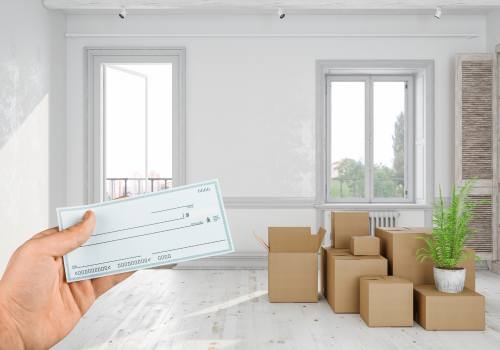
Moving plans require clear communication with your landlord, and the notice period is one of the most important details to confirm before signing a lease.
You’ll need to understand exactly how many days’ notice you must provide before vacating the property, typically ranging from 30 to 60 days.
Ask whether you’ll need to submit your notice in writing and what specific information it must include.
Confirm if the notice period aligns with your lease’s end date or if you can give notice mid-month.
You should also inquire about the consequences of providing insufficient notice, such as losing your security deposit or facing additional charges.
If you’re planning to break your lease early, find out if there’s a separate notification process and what penalties you might incur.
Application Fee Refund Policy
Understanding rental application fee refund policies is essential before submitting your payment.
You’ll want to ask specifically whether the fee is refundable under any circumstances, as most landlords and property managers consider these fees non-refundable.
If refunds are possible, determine the exact conditions that qualify you for a refund.
Some properties might return your fee if they reject your application before running background checks, while others won’t refund regardless of circumstances.
Get these policies in writing, and don’t rely on verbal agreements.
You should also ask about the timeline for receiving any potential refund and the method of repayment.
If you’re applying to multiple properties, understanding each location’s refund policy can help you strategically manage your application budget and protect your financial interests.
Emergency Contact Protocol

Why do landlords require emergency contacts on rental applications?
They need reliable points of contact in case you’re unresponsive during emergencies like medical incidents, property damage, or extended unexplained absences.
Your emergency contacts serve as backup communication channels and may help coordinate access to your unit if needed.
Before listing someone as your emergency contact, you’ll want to verify several key details:
- Does the landlord require local contacts only?
- Will they contact these individuals for non-emergency situations?
- What specific information must you provide beyond basic contact details?
It’s essential to inform your chosen contacts that you’ve listed them and guarantee they’re comfortable with this responsibility.
You should also confirm whether the landlord requires multiple emergency contacts and if there are restrictions on who can serve in this role.
Package Delivery System
Secure package delivery has become an essential consideration when completing rental applications.
You’ll want to ask specific questions about the property’s package management system, including whether there’s a dedicated package room or secure lockers.
Find out if staff members sign for deliveries and how they’ll notify you when packages arrive.
Don’t forget to inquire about access hours for package pickup and any size restrictions for deliveries.
If you’re planning to receive regular shipments or run a small home business, you’ll need to confirm the property’s policies regarding high-volume deliveries.
Ask about protocols for handling oversized items and whether there’s a maximum time limit for package storage.
Understanding these details will help you avoid delivery headaches and guarantee your valuable shipments remain secure.
Pest Control Services

When evaluating a rental property’s pest control services, you’ll need specific details about prevention and treatment protocols.
Ask who’s responsible for pest control expenses and how frequently inspections occur. Determine if the property has a contract with a professional pest control company or if management handles issues internally.
Find out what types of pests have been reported in the building and neighboring units over the past year.
You’ll want to know if there’s a documented history of bed bugs, roaches, or rodents.
Request information about the response time for pest-related emergencies and whether you’re required to grant access for routine preventive treatments.
Don’t forget to clarify if you’re allowed to hire your own pest control service if you’re dissatisfied with the property’s approach.
Snow Removal Responsibilities
Living in snowy regions makes it essential to understand snow removal responsibilities before signing a rental agreement.
You’ll need to confirm whether the landlord handles snow removal or if it falls under your duties as a tenant.
Ask about specific requirements, including when paths must be cleared and which areas you’re responsible for maintaining.
Don’t forget to inquire about available snow removal equipment.
If you’re responsible, determine whether the landlord provides shovels, salt, or a snow blower.
You’ll also want to verify the local ordinances regarding snow removal timeframes, as many municipalities require clearance within specific hours after snowfall.
This knowledge helps you avoid potential fines and liability issues.
If the landlord handles snow removal, get written confirmation of response times and service areas in your lease agreement.
Internet and Cable Options
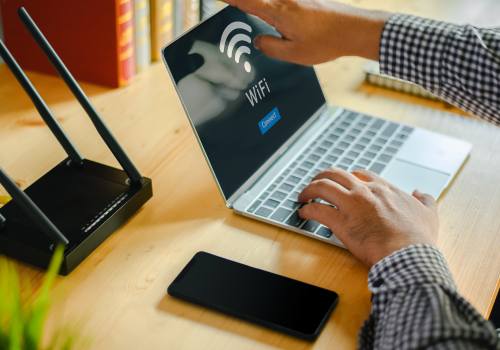
Most rental properties come with predetermined internet and cable service options, making it essential to investigate available providers before signing a lease.
You’ll want to confirm whether you’re locked into specific providers or have the freedom to choose your own.
Ask about existing cable and internet infrastructure, including the location of outlets and connection points.
Find out if the property has fiber optic capabilities or is limited to DSL or cable internet.
You’ll need to determine if satellite dishes are permitted and where they can be mounted.
Some landlords include internet and cable costs in the rent, while others require separate service contracts.
Don’t forget to inquire about installation fees, who’s responsible for them, and whether you’ll need to schedule installation appointments around the property manager’s availability.
FAQs
Is There a Preferred Day and Time for Property Viewings?
You’ll find weekday viewings between 10 AM and 4 PM are typically best, as landlords prefer business hours. However, you’re free to negotiate weekend appointments if that’s more convenient for your schedule.
Are There Any Ongoing Disputes With Neighboring Properties?
While peace is desirable, you’ll want to know about any neighbor conflicts. Ask directly about property boundary disputes, noise complaints, or shared resource issues that could impact your future living experience.
How Many Other Applicants Are Currently Being Considered?
You’ll want to directly ask the landlord about competing applicants to gauge your chances and timeline. This knowledge helps you decide whether to continue pursuing this property or explore other available options.
What Documents Are Needed for Proof of Self-Employment Income?
You’ll need to provide tax returns, bank statements, profit/loss statements, client contracts, and 1099 forms. Consider including business licenses and recent invoices to strengthen your income verification for self-employment rental applications.
Is There a Waiting List for Specific Unit Types?
You’ll want to ask about wait times, unit availability, and priority ranking for your desired floor plan. Many properties maintain lists for popular layouts, so checking waitlist status helps plan your move-in timeline effectively.
Final Thoughts
Armed with these 26 essential questions, you’ll confidently navigate the rental application process like a seasoned detective investigating a case.
You’ve learned to scrutinize everything from utility management to pest control policies, ensuring there won’t be any costly surprises.
By thoroughly understanding the financial obligations, lease terms, and property maintenance expectations, you’re now equipped to make an informed decision that aligns with your needs and budget.